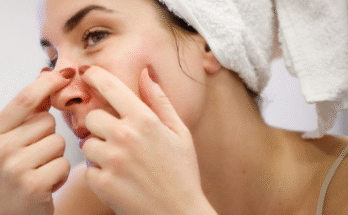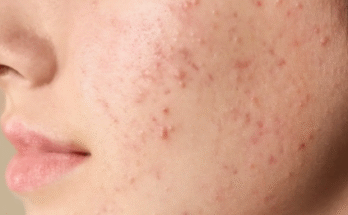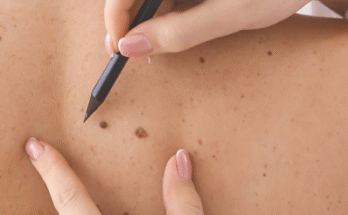Acne is one of the most common skin concerns, affecting people of all ages and backgrounds. While many associate acne with the teenage years, it often continues or even appears for the first time in adulthood. For some individuals, acne seems stubborn no matter how consistent they are with their skincare routine. When this happens, the cause may go deeper than the surface of the skin. One possible factor is hormones, and this is where hormone therapy may come into consideration.
Hormones play an essential role in how our bodies function. They influence everything from mood and metabolism to hair growth and skin oil production. When hormonal levels shift, the skin can react in noticeable ways, including increased oil production that clogs pores and causes breakouts. Understanding this connection helps explain why some people experience acne around specific times, such as before menstruation, during pregnancy, or throughout menopause.
Hormonal acne typically appears in the lower part of the face, including the jawline, chin, and neck area. It may present as deep, painful cysts or persistent blackheads and whiteheads that do not respond well to standard topical treatments. If this sounds familiar, a healthcare provider might suggest exploring whether hormone therapy could be part of an effective acne treatment plan.
Hormone therapy for acne usually involves addressing hormonal imbalances that contribute to excess oil production and inflammation. It can take several forms depending on the person’s age, sex, medical history, and the type of acne they have. For women, common hormonal treatments may include oral contraceptives or anti-androgen medications. These therapies work by regulating hormone levels that affect the skin’s oil glands, helping to reduce breakouts over time.
Birth control pills that contain both estrogen and progesterone are often prescribed for acne because they can lower levels of androgens, the hormones that increase oil production. This reduction in oil can make pores less likely to clog, leading to clearer skin. It’s important to note, however, that results can take a few months to appear, and hormone therapy should always be supervised by a qualified healthcare professional.
Another type of hormonal treatment sometimes used is spironolactone, an anti-androgen medication. It works by blocking the effects of androgens on the oil glands, making it helpful for women with persistent acne that doesn’t respond to topical or antibiotic treatments. Because spironolactone affects hormone activity, it must be prescribed and monitored carefully to ensure safety and effectiveness. It is not typically used in men because it may interfere with normal male hormone functions.
In some cases, hormone therapy is not limited to prescription medications. Lifestyle factors that influence hormones can also make a difference. Stress, lack of sleep, and poor diet can all contribute to hormone fluctuations that aggravate acne. Managing stress through exercise, mindfulness, or adequate rest may help support hormonal balance. A balanced diet rich in fruits, vegetables, and whole grains can also play a role in maintaining healthier skin. While these approaches are not a replacement for medical treatment, they can complement a professional care plan.
Deciding whether hormone therapy is right for acne involves several considerations. A healthcare provider will likely start by asking detailed questions about medical history, menstrual cycles, and any other symptoms that may indicate hormonal imbalance. They may recommend blood tests to evaluate hormone levels and rule out other potential causes of acne. This thorough approach helps ensure that the chosen treatment is safe and targeted to the individual’s specific needs.
It’s also essential to recognize that hormone therapy is not a quick fix. Because hormonal cycles and skin renewal processes take time, it can take several months before visible improvements appear. Patience and consistency are key. Some people notice a temporary flare-up at the start of treatment as the body adjusts, which is normal and typically resolves with continued use. Regular follow-ups with a healthcare professional help track progress and make any necessary adjustments.
While hormone therapy can be highly effective for certain types of acne, it’s not suitable for everyone. Some individuals may have health conditions or risk factors that make hormone-based treatments inappropriate. For instance, people with a history of blood clots, certain cancers, or liver problems may need to avoid specific hormonal medications. That’s why it’s so important to consult a qualified provider before starting any hormone therapy.
It’s also possible that acne has other underlying causes unrelated to hormones. Bacteria, genetics, and environmental factors can all contribute to breakouts. In these cases, a dermatologist might recommend topical retinoids, antibiotics, or other medications instead. Sometimes, combining different treatments—such as topical creams, oral medications, and lifestyle adjustments—provides the best results. Every person’s skin is unique, so what works for one may not work for another.
For many adults, hormonal acne can feel discouraging, especially when it appears unexpectedly after years of clear skin. But the good news is that effective options exist. Hormone therapy can be a powerful tool in restoring balance, improving skin clarity, and boosting self-confidence. By working closely with a healthcare professional, patients can find a personalized treatment plan that addresses both the symptoms and the root cause of their acne.
It’s also worth mentioning that hormone therapy does more than clear skin—it can sometimes improve overall well-being. When hormone levels are balanced, people often notice better mood stability, improved energy, and fewer menstrual-related symptoms. These additional benefits can make hormone therapy feel especially rewarding for those who experience hormonal imbalances in multiple aspects of their health.
Before starting any new treatment, it helps to have realistic expectations. Hormone therapy may reduce acne significantly, but complete elimination is not always possible. Some individuals may still experience occasional breakouts, especially during times of stress or hormonal change. Skincare routines that include gentle cleansing, non-comedogenic products, and daily sunscreen can help maintain results and protect skin health.
In summary, hormone therapy can be an effective option for managing acne that is linked to hormonal fluctuations. It works by targeting the root cause—imbalanced hormone activity that affects oil production and inflammation. For many people, especially adult women with persistent lower-face acne, it can bring lasting relief and clearer skin. However, it should always be approached thoughtfully, under the guidance of a healthcare professional who can tailor treatment to individual needs and monitor for side effects.
If you’re struggling with acne that doesn’t respond to traditional treatments or seems to worsen around hormonal changes, consider speaking with a dermatologist or endocrinologist. They can help determine whether hormone therapy is a safe and appropriate option for you. With the right guidance, patience, and consistent care, achieving healthier, more balanced skin is possible.


